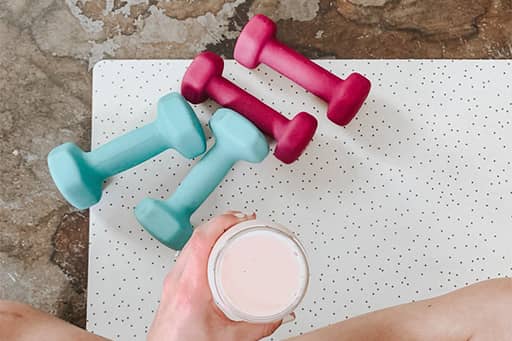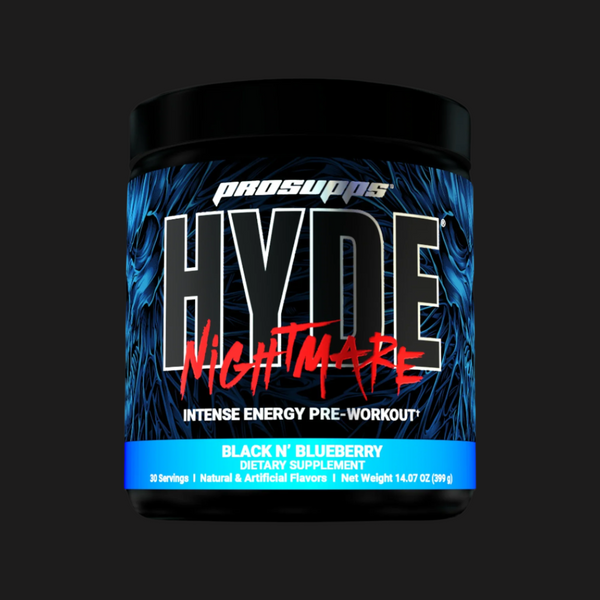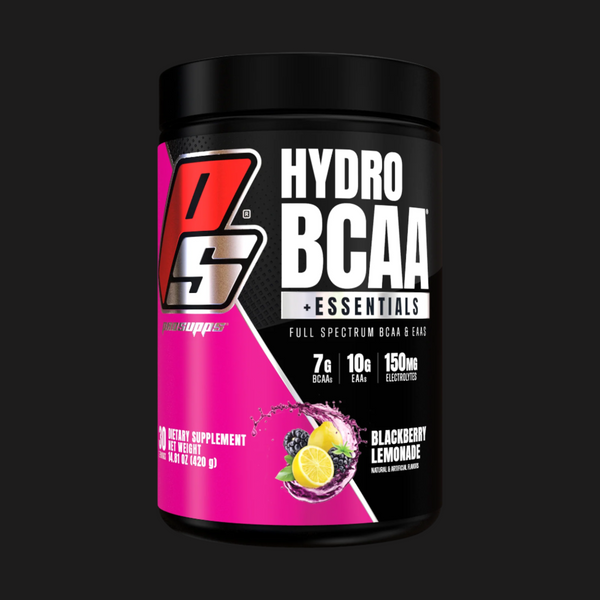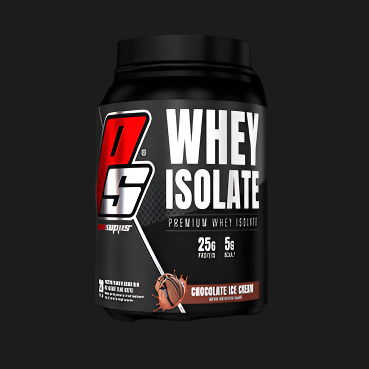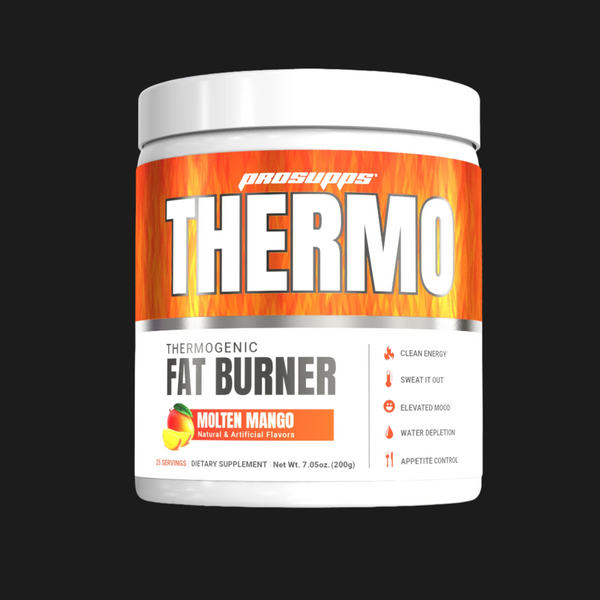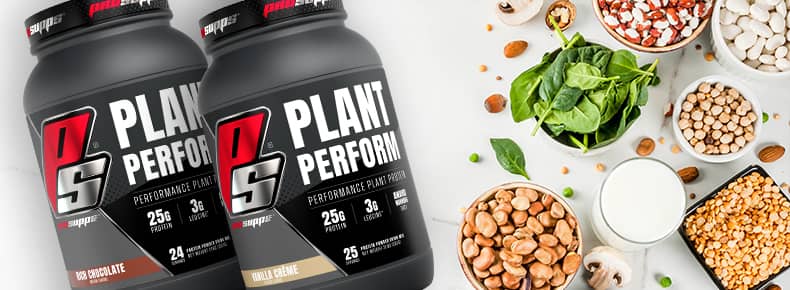
8 Reasons to Try Plant-Based Protein Powder
 Written by Guy Gustafson
Written by Guy Gustafson January 22, 2021
The more you know about the different protein powder options available to you, the easier it is to find one that meets your needs.
Have you been on the fence about trying a plant-based protein powder instead of a more traditional dairy-based product, such as whey or casein protein? Are you unsure of what this kind of supplement has to offer?
If so, we’re here to explain everything you need to know. Read on for eight great reasons to try plant-based protein powder.
1. Meet Your Muscle-Building Goals
Lots of people, including many fitness enthusiasts, believe that you can’t build muscle if you get your protein from plant-based sources. Luckily, though, this myth has been thoroughly debunked.
It’s absolutely possible to build muscle with plant-based protein powder. As long as you're meeting the basic requirements for muscle growth (eating in a calorie surplus, meeting your daily protein goal, strength training on a regular basis, etc.), there’s no reason why you can’t see results with the help of plant-based protein.
Research shows that plant-based protein can produce the same muscle-building effects as whey protein. For example, one 12-week study on pea protein vs whey protein showed that weight-lifting men could gain the same amount of muscle mass regardless of their protein source.
The only caveat here is that to build muscle, your plant protein must be a complete protein. Complete proteins contain nine amino acids (known as essential amino acids) that the body cannot produce on its own.
Without these amino acids, especially Leucine, a branched-chain amino acid that plays a significant role in muscle building, you will likely not see the same kind of results that you’d see if you were consuming whey protein or another animal-based protein source.
2. Fewer Digestive Issues
Most gym-goers are not strangers to protein powder. It’s a staple in their post-workout supplement stack, and they add it in religiously to promote muscle growth and recovery.
Here’s the problem, though. For a lot of people, traditional dairy-based protein powders can cause digestive issues.
Are you lactose intolerant, like 65 percent of the human population? If so, you might find that you have a hard time digesting a dairy-based protein. It might lead to bloating, gas, diarrhea, or other unpleasant symptoms.
If your post-workout protein shake is making you feel terrible after every workout, it’s not a good fit for your supplement regimen or your overall health and fitness. It’s time to try something different.
A plant-based protein powder might be a better option for those who need extra protein in their diets but can’t handle dairy products. They’ll be able to experience the benefits of protein supplementation without any negative effects.
3. More Diet Diversity
Diversity matters in all areas of our lives, including the food we eat.
Diversifying our diets can help us to ensure we’re getting adequate amounts of macro and micronutrients on a daily basis. By meeting these macro and micronutrient requirements, we can also reduce our risk of developing a variety of illnesses, including chronic health conditions.
Diet diversity is great for improving gut microbiome health, too. When we eat a wide range of foods, especially plant foods, we provide the bacteria in our digestive tract, or gut, with more nutrients. This helps to promote better bacteria balance, which can lead to better digestion, a better mood, and better skin.
Remember, you don’t have to follow a strict vegan diet to incorporate and benefit from plant-based protein. In fact, those who mainly get protein from animal sources might experience the most advantages from adding more plant protein sources into their routine.
If you’re only getting protein from whey or other animal sources, you might be meeting your daily protein goal. At the same time, though, you could also be missing out on important micronutrients, including the vitamins and minerals that are more abundant in plants than animals.
4. More Vitamins and Minerals
Speaking of vitamins and minerals, many plant-based protein powders are rich in nutrients that the body needs to function optimally. These nutrients, typically, are not present in high quantities, or present at all, in animal-based protein powders.
For example, pea protein contains a great deal of iron. Brown rice protein also contains lots of antioxidants, as well as B-vitamins, and fava bean protein is a good source of both manganese and copper.
When your diet is low in these and other essential micronutrients, your risk of developing chronic health issues increases. You might be more prone to certain types of cancer, for example. You could also be more likely to develop heart disease, diabetes, osteoporosis, and mental health challenges like depression.
5. More Satiety
Nutrition experts often describe protein as the most satiating macronutrient. More than carbohydrates and fat, it increases levels of hormones associated with fullness and decreases levels of hormones associated with hunger.
Hitting your protein goal is the first step to controlling your appetite so you can avoid overeating and lose weight. Many athletes use protein powder as a tool to help them hit this goal, and research shows that plant-based protein powder is just as effective as dairy-based protein powder when it comes to appetite management.
The results of one study also revealed that people who consumed pea protein powder 30 minutes before eating pizza ate 12 percent fewer calories than those who did not have any protein powder. If you need help controlling your daily calorie intake, adding in a protein shake made from plant-based protein powder might be a good option to consider.
6. Improved Heart Health
Plant-based protein sources may be more beneficial to those who have concerns about their heart health. This is especially true of plant-based protein powder made from pea protein.
Pea protein powder, specifically, has been shown to reduce blood pressure levels and cholesterol levels. When combined with other healthy practices, such as regular exercise, the consumption of pea protein may help to improve overall heart health.
7. Allergy-Friendly Options
Some people are wary of plant-based protein powders because they have concerns about food allergies.
It’s true that certain plant-based protein sources, such as soy, can trigger allergic reactions. There are plenty of allergy-friendly plant-based protein sources, though. The list includes choices like pea protein, brown rice protein, fava bean protein, hemp protein, and quinoa protein.
Don’t forget that dairy-based protein powders can trigger allergies and food sensitivities, too. Those who are allergic to dairy or lactose intolerant will often fare better if they choose a plant-based protein powder instead of their tried-and-true whey protein shake.
8. Great Flavors and Textures
Okay, not all plant-based protein powders taste great. There are plenty of chalky and grainy ones on the market today.
Plant-based shakes have come a long way over the years, though. ProSupps’ Plant Perform, in particular, has an advantage in this arena.
With our extensive taste-testing and Flavor Smooth Technology, we’ve created a smoother, creamier protein powder. It blends well and tastes more like a milkshake than your typical gritty, grainy post-workout shake.
We also offer two tasty flavors, Rich Chocolate and Vanilla Creme, so you’ve got options when it comes to the type of shake you want to enjoy.
Try Plant-Based Protein Powder Today
Are you convinced now that plant-based protein powder is a good option for you?
If you’ve been thinking about giving a plant-based protein supplement a try, now is the time. ProSupps Plant Perform is the perfect solution to all your protein supplementation needs.
Made with 25 grams (0.9 ounces) of protein from high-quality plant sources (a combination of pea, brown rice, and fava bean protein), plus 3 grams (0.1 ounces) of Leucine, Plant Perform will help you to level up your performance and maximize your recovery.
Order some today to experience the magic for yourself!
GET LEAN
 Why You're Struggling
Can't Lean Out? Here's Why You're Struggling
Why You're Struggling
Can't Lean Out? Here's Why You're Struggling
We all know the feeling. You’ve been working hard in the gym, sticking to your diet and getting in your...
 Weight Loss
Choosing the Best Protein Powder for Weight Loss
Weight Loss
Choosing the Best Protein Powder for Weight Loss
Struggling to shed body fat and lean out? You might need to focus more on your nutrition, specifically your protein...
 Weight Loss
9 Ways to Speed Up Your Weight Loss and Burn More Fat
Weight Loss
9 Ways to Speed Up Your Weight Loss and Burn More Fat
Weight loss is a major goal for more than 40 percent of Americans. Is it something you’re working toward, too?
 Workout Routine
10 Tips for Building a Sustainable Workout Routine
Workout Routine
10 Tips for Building a Sustainable Workout Routine
Starting a fitness journey is an exciting time, but maintaining a sustainable workout routine can be challenging. From setting realistic...





